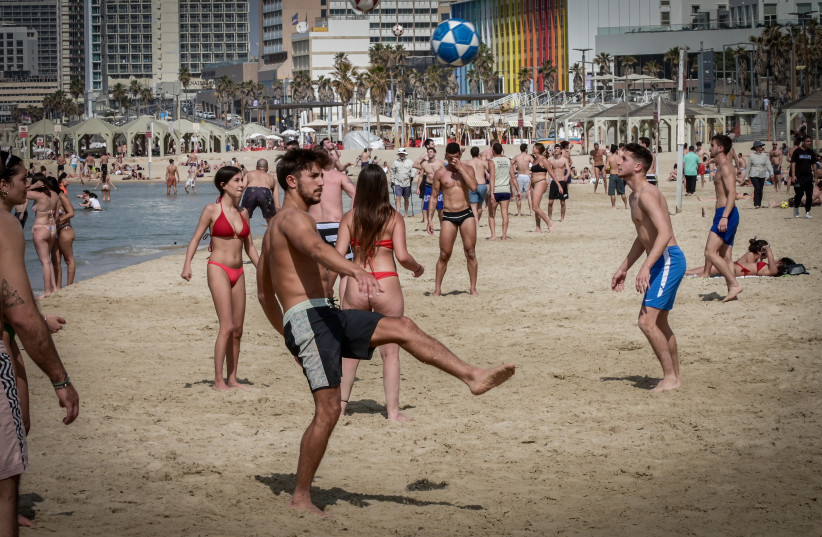Israelis got a chance to cool off on Sunday as the oppressive heat wave that had been engulfing the country finally broke, and temperatures lowered down into the high 20s Celcius (80s Fahrenheit).
It was also slightly cloudy on Sunday - a phenomenon expected to continue into Tuesday even though temperatures will rise slightly starting on Monday.
Wednesday will bring clear skies and a further increase in temperatures, returning the country to an uncomfortable heat.
The heat is coming back - here is how to stay safe
The Health Ministry called on the general public, and especially the elderly population and patients with chronic diseases, to be cautious and avoid exposure to the heat and the sun as much as possible, to avoid unnecessary physical exertion, and to make sure to drink water.

The ministry noted that there is an increased risk of heatstroke, especially among the elderly, infants, toddlers, patients with cardiovascular diseases, obese people, patients with chronic diseases, patients on certain medications, and people suffering from acute illness or dehydration.
Signs of heatstroke include a body temperature above 103F (39.5C), red, hot, and dry skin, rapid pulse, severe headache, palpitations, dizziness, nausea, confusion, and loss of consciousness. Anyone suffering from those signs should call emergency services and receive treatment immediately.
Until help arrives, the patient should stay in a cool and shady area and try and cool their body. Patients suffering from heatstroke should not drink and will instead receive fluids through an IV.
